Mogadishu, Somalia, July 2011 – Somalia was in the midst of an ongoing civil war and a severe famine, brought about by a drought and a lack of governance. The famine ultimately kills over two hundred thousand civilians. The capital city, Mogadishu, was largely controlled by the UN-recognized Transitional Federal Government, supported by African Union troops. The Islamic extremist insurgent group, Al-Shabab controlled pockets of the city, and tribal in-fighting continued. While the city itself, the airport, and nearby port, were mostly controlled by the TFG, Al-Shabab, controlled the surrounding countryside. Fighting was ongoing, despite the humanitarian crisis killing thousands. We were tasked with evaluating if, and how, civilian aid organizations could respond to the humanitarian crisis and deliver desperately needed food, water, and medicine.
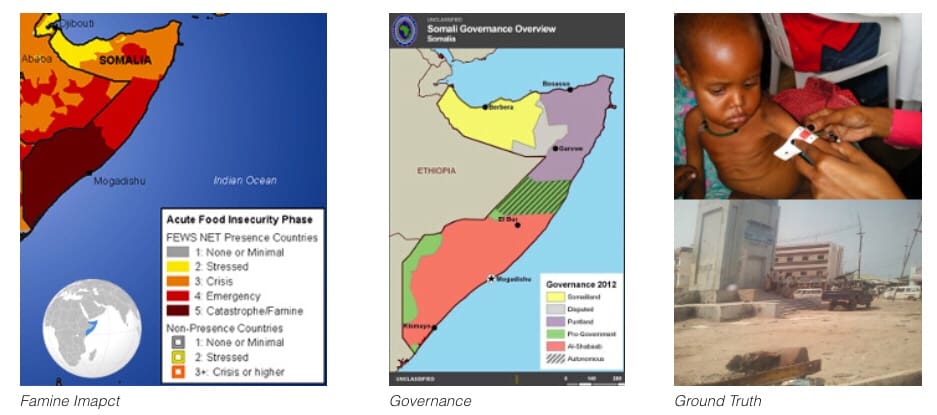
While this was not my first experience with overseas travel, conflicts, humanitarian work, and civ-mil partnerships, this was my first time totally unsupported in a place where the nearest decent hospital was the next country over, there was no infrastructure, such as phones or electricity, and we were completely surrounded by the enemy. There was no QRF, no support, no logistics, and no security beyond what the local TFG could provide. We needed to bring everything required to sustain ourselves and collect the information needed. I knew there wouldn’t be a Best Buy or even a tourist camera store in-country. And we had to keep it all under 20kg (UN flight weight restrictions), go through commercial security and customs in various airports, and be easily carried (didn’t expect luggage trolleys, turns out there weren’t any).
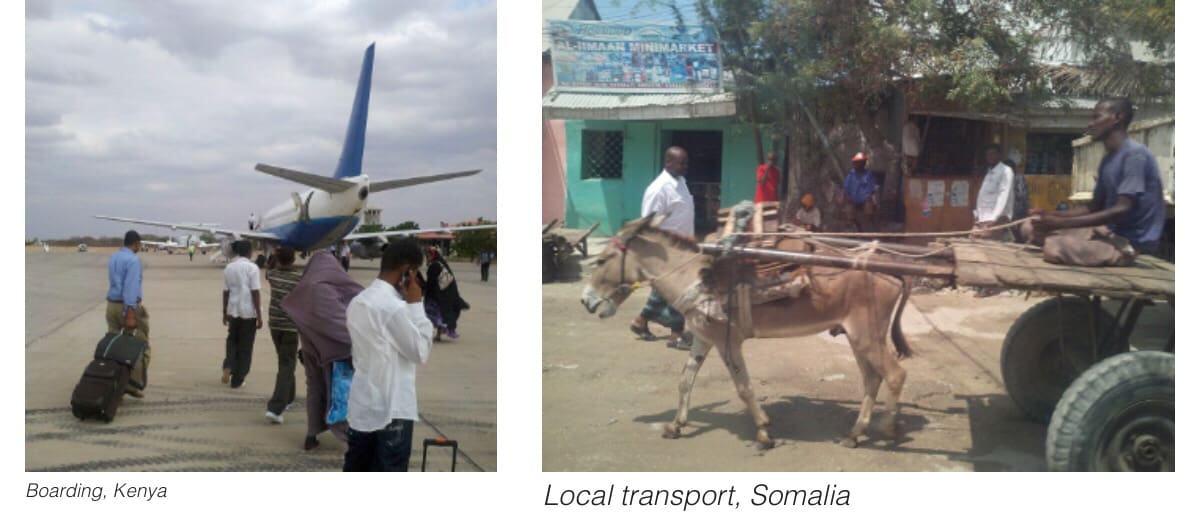
The plan was for a three week trip, basing out of Nairobi, Kenya while sorting transit in and out of Mogadishu, which was still sketchy. For some reason neither Orbitz nor Expedia had flights or good hotel recommendations for Mogadishu. We expected at least two weeks in Somalia. So pack two weeks of clothes, toiletries, food, water, coffee, power, comms, technical data collections gear, etc. 20kg. Cool. No problem. Right? The working model in my head was, sustainment gear stowed at the safe house and essential mission and “Oh Shit” gear carried with me in a backpack. Recharge batteries at night, do processing and uploading then, etc. What is it they say about plans of mice and men? Fortunately, I wasn’t wholly unprepared or completely wrong in my planning, but a lot of frustrating shortcomings were discovered. So now I’ll highlight the Lessons Learned that drove me to develop the Observer Kit:
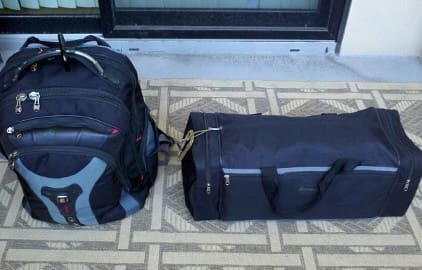
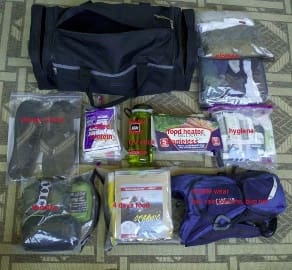
1) Power, Power, Power. Looking back, my “conservative” guess about worst-case availability of infrastructure turned out to be a bit optimistic. The nature of the physical threat, the security precautions demanded, as well as the ops tempo also threw my preparations a curve ball. Working overseas is not the same as camping or hiking. Solar is great. Particularly when there is little-to-no power infrastructure. But when you are working, you are on-the-go, constantly getting in and out of vehicles, and not always the same ones. The safe house we were staying in was great. They even occasionally ran a generator for a few hours a night to give us a little power. How many outlets do you think are going to be free and how soon till a surge breaker trips? Just imagine how many others are struggling with their power budget.
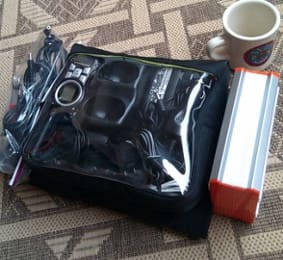
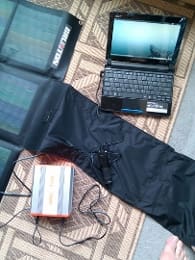
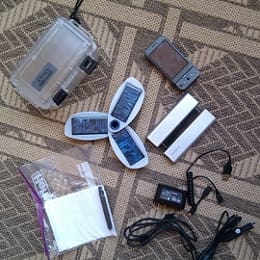
2) Backpacks suck. Being constantly on the move, in and out of vehicles, walking through crowded areas, and needing quick access to your gear make the backpack form factor far less than ideal. Again, working overseas is not the same as camping. In uniform you have a plate carrier or vest rig and probably a belt where constant use items can be grabbed quickly and easily. The camera, voice recorder, or GPS sitting in your backpack, does you no good in a vehicle or on the move. You have no visibility or control over the pack on your back in a crowded market or street. And few backpacks have things like pockets for satellite antennas that need constant view of the sky. Which brings me to my next point:
Communications are critical. Mogadishu is one of the more extreme environments but disasters, conflicts, or mass scale events can also make communications difficult. We had a single (!) satellite phone for emergency use and expected to have access to some other communications networks. We needed to connect with people who sometimes had no local phone or SIM card at all. Most carriers blocked international calls. Keeping track of the different carriers required to talk to different people and the multiple phones was another complication. And my wife was Not Happy with me going dark for long stretches. If the team got separated, who had the sat phone? Over the years there have been other Lessons Learned in this category but these got me started.
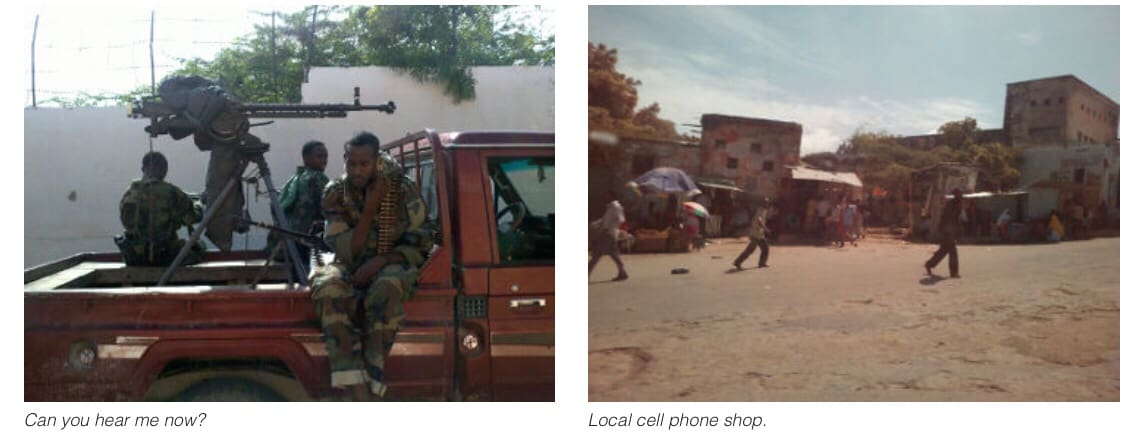
4) Semper Gumby. You’d be amazed at the Opportunities To Excel found in these environments. Being able to solve, hack, or improvise around problems that wouldn’t exist back home can have a dramatic impact on effectiveness. Things like copying and moving data that would normally be as simple as emailing someone a spreadsheet or photocopying some pages can be serious obstacles to operations. Fixing (or sometimes breaking) things in a pinch, is needed more often than you’d suspect. The Marine credo “Forever Flexible” or “Improvise, Adapt, Overcome” should be taken to heart.
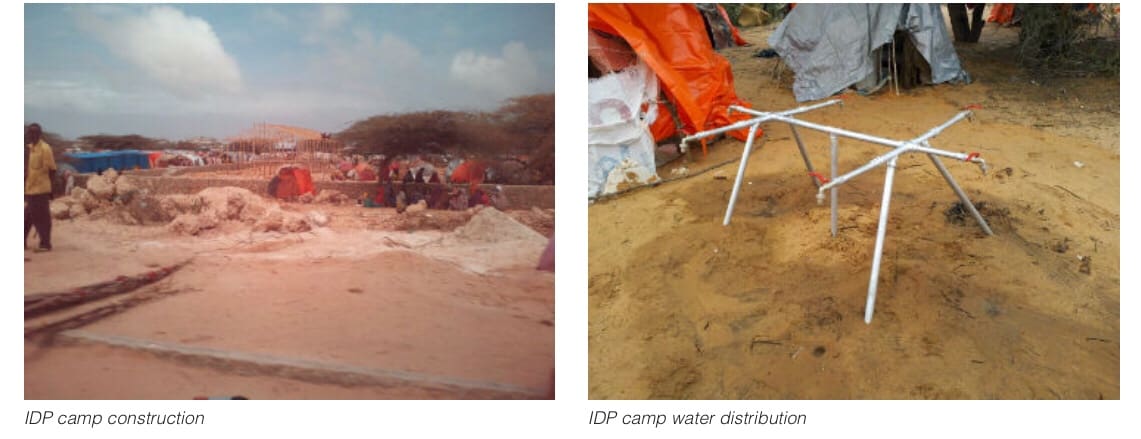
5) Hygiene helps. Hygiene and comfort are more difficult than you expect, but are worth tackling if you can keep it fast, light, and compact. Keeping you effective so that you can accomplish your goals is worth some effort. Time is often more scarce than running water, however.
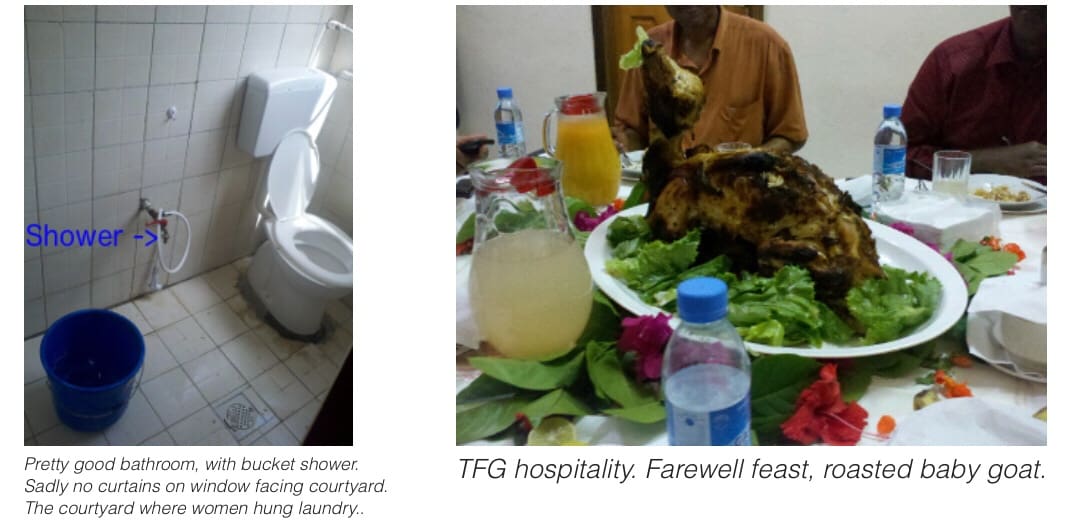
Conclusion. At that time we were purely a consulting company with no interest in manufacturing or selling gear. The week I returned I started looking everywhere on the market for solutions and improvements. Nothing quite fit the requirements. So I reached out to a friend who runs Zulu Nylon Gear to make a custom sling bag for us and proceeded to hack, tweak, and customize the kit around this new wearable platform. Over the years it’s been refined and refactored countless times. Experiences in diverse climates like the Philippines and Iraq drove comfort tweaks. Constant heavy use and new offerings on the market improved capabilities and features. I’m proud of what’s been built and have had a lot of requests from other users in the field to purchase our kits. So now we are offering them to the general market. Everything we sell is gear that we rely on and use in the field ourselves. Take a look at our SSR Kits and our Observer System or ping us for other custom solutions.

Observer Kit in the Philippines, doing wide area assessment after Typhoon Yolanda, NOV 2013
thirdblockgear.com
This is the final bag design.
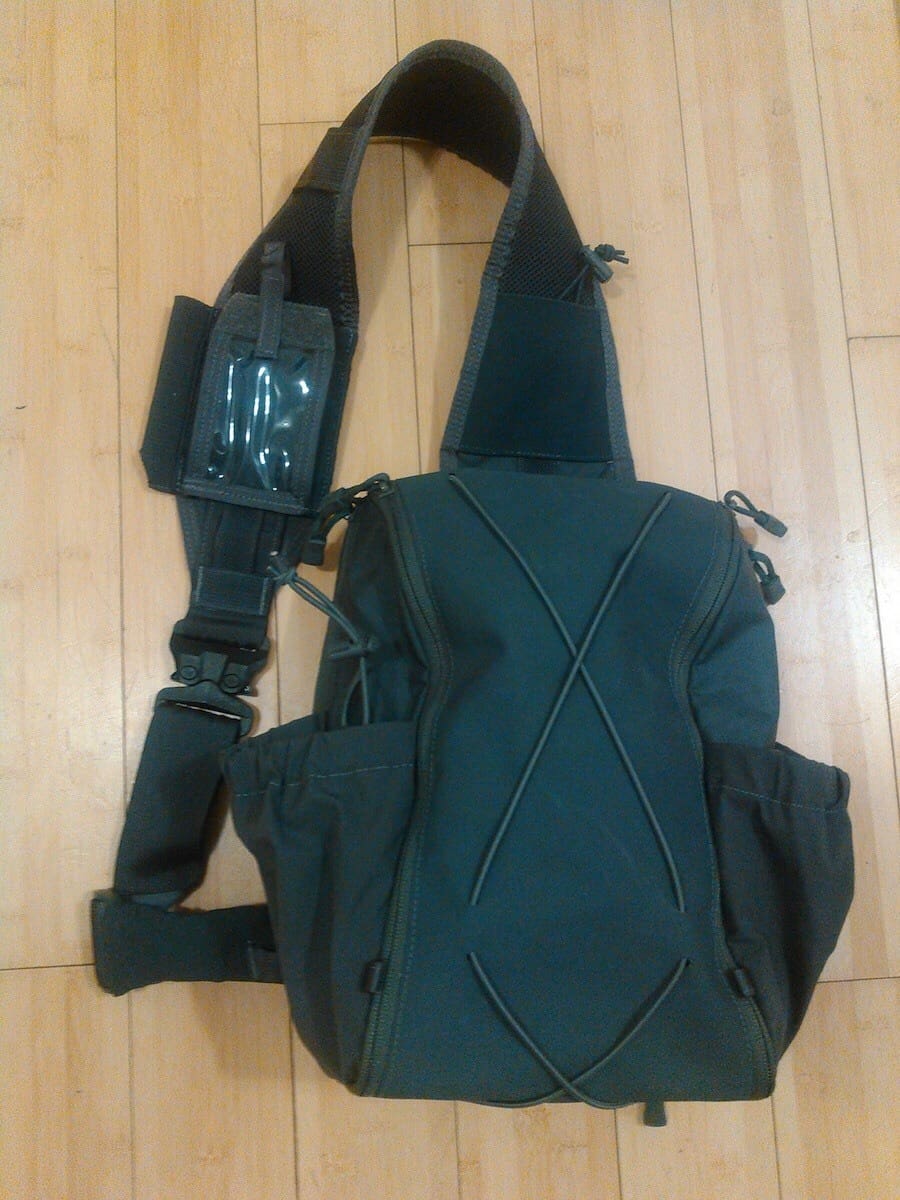
Tags: ThirdBlockGear


Hey guys – very cool stuff you’re doing. Your section about power really resonated with me, because scavenging, using and storing power in austere environments is what we are all about. Check out http://www.ptxnomad.com
Surprised to see the Solio,and curious how it performed for you. I realize that there were a lot fewer options then, just never had good luck with the battery, mot to mention the myriad of cables and adapters.
Hey James, way back then I used Brunton, Solio, and Callpod in different set-ups and none of them were ideal but they worked (although had one Solio just stop working right after got in country, but “two is one”, so had back-up). For the Solio’s what I did was used colored tape to mark which adapters connected to which and things like that for other people (after heavy use, I got to know them all by sight). The technology and market offerings have evolved so much since those early days so things are a LOT better now.
Thanks for the reply , very much mirrors my experience with them. Things are progressing pretty well on the power and comms available.
Tough situation, and looks like you were doing good work to address it. Thanks for sharing your story and the lessons learned.